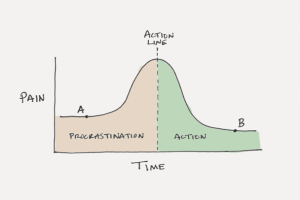By: Kristen English

I have always had a love/hate relationship with writing ever since I first learned how to write. My teachers and peers would always say that I had a knack for it, but for some reason I always despised the writing process. For me, I think procrastination was the biggest issue that I faced when writing. I would always (and even still do now) put off starting an assignment or piece of writing until the very last minute. However, once I actually sit down and start, the ideas just kind of naturally flow out of me.
I would describe my writing style as very matter-of-fact with an element of realism. For me, I hate when I’m reading something that doesn’t flow the way a real-life conversation would. I feel like the way to connect with your audience or readers on a deeper level is to write in a way that they would relate to. Blogs are such a popular way to reach audiences in society today and I believe that it’s due to their realistic nature. With blogs, one has the ability to write down and publish their thoughts on any topic without the formality of most print media. That’s probably my favorite aspect. I strive for anything I write to have this realistic and relatable feel as well.
My favorite environment to be in when I write is a very laid-back vibe with other people in the area. I mainly go to coffee shops around my apartment and set up camp for the entire day if I know I have an assignment coming up, or if I just want to journal and write down some of my thoughts. I like to be around other people when I write because it helps me draw inspiration. I am very much a people person and I have found that, for me personally, I work better when others are around.
Writing isn’t my favorite pastime by any means, but I would say that there is something quite calming about sitting down in my favorite coffee shop, with my favorite coffee, and just writing down my thoughts. I am constantly reminded of how therapeutic it is every time I journal or write about something that I am passionate about. Once I work on my procrastination issues (ehh maybe I’ll start tomorrow) I am confident that I could become a better writer overall.








 is not good. Some of the best writing I’ve done is the product of good prewriting. Inn these cases I draw some weird flowcharts which to others may look like some weird conspiracy theory ravings but to me tell me thegeneral outline of my paper. If my prewriting isn’t great then my revision is horrid. I can never bring myself to significantly change what I’ve written. There is definitely a lot of room for improvement in my writing process.
is not good. Some of the best writing I’ve done is the product of good prewriting. Inn these cases I draw some weird flowcharts which to others may look like some weird conspiracy theory ravings but to me tell me thegeneral outline of my paper. If my prewriting isn’t great then my revision is horrid. I can never bring myself to significantly change what I’ve written. There is definitely a lot of room for improvement in my writing process.